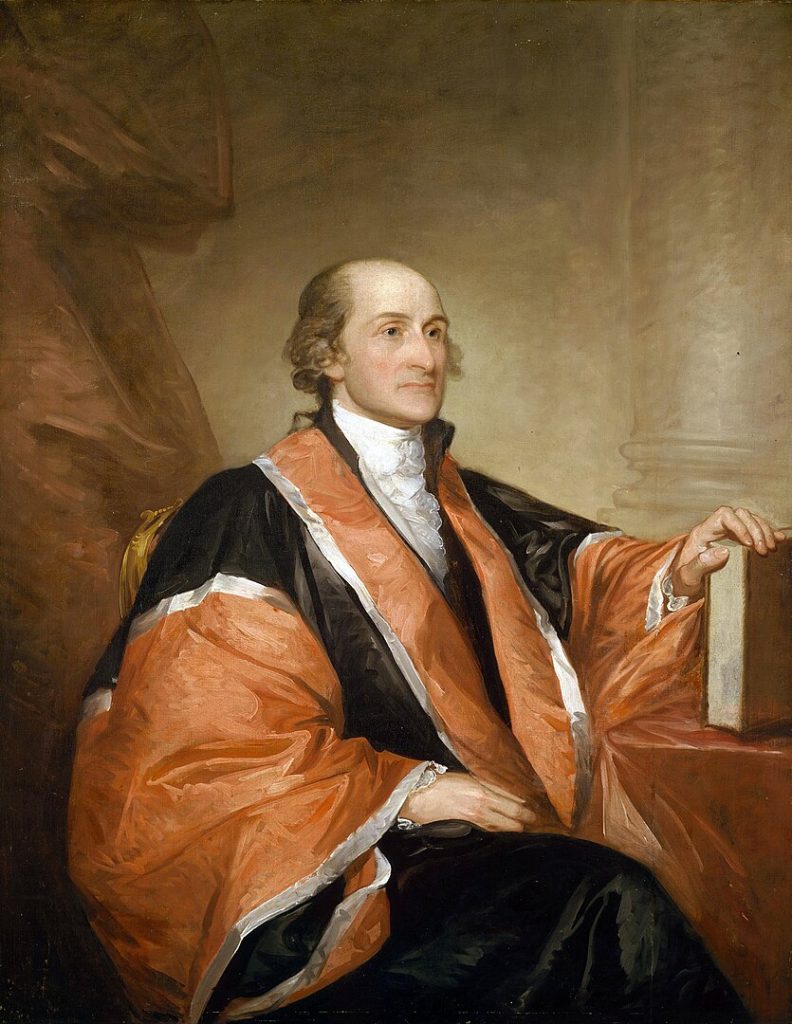John Jay was born on December 12, 1745, into a prominent New York family of merchants and government officials. Educated under private tutors and then at King’s College (now Columbia University), Jay was molded by a confluence of commerce, law, and public service.
Trained as a lawyer, John Jay’s initial involvement in colonial politics began as a staunch defender of colonial rights against British overreach. His essays against the loyalist governor’s policies made him a known figure in New York’s patriot circles.
Significant Occurrences:
1. Continental Congress (1774-1779): Jay’s role in the Continental Congress saw him serve as its president in 1778. His firm belief in the colonies’ cause and his legal prowess made him invaluable during the revolutionary period.
2. Diplomatic Missions: Jay was one of the commissioners who negotiated the Treaty of Paris in 1783, which ended the American Revolutionary War. His skills in diplomacy were evident as he, along with Adams and Franklin, secured favorable terms for the young nation.
3. Federalist Papers (1787-1788): Jay collaborated with Alexander Hamilton and James Madison to pen the Federalist Papers, which advocated for the ratification of the U.S. Constitution. Though he wrote only five of the essays due to illness, his contributions emphasized the importance of a strong centralized government for international relations and defense. Primary Source Reference: Federalist No. 2 to No. 5, authored by Jay, provides insights into his perspectives on governance and the need for union.
4. First Chief Justice of the United States (1789-1795): As the inaugural Chief Justice, Jay set important precedents. He also became involved in international diplomacy once again, negotiating the Jay Treaty with Britain in 1794, which sought to resolve lingering issues from the Revolutionary War and avert another conflict. While controversial at home, the treaty reinforced American sovereignty and enhanced trade relations. Secondary Source
Long-Term Contributions:
1. Foundations of American Jurisprudence: Jay’s leadership as the first Chief Justice helped shape the direction and principles of the U.S. Supreme Court, laying the groundwork for its evolving role in American governance.
2. Diplomatic Legacy: His repeated roles in diplomatic missions, from the Treaty of Paris to the Jay Treaty, positioned the United States favorably in the complex geopolitical stage of the late 18th century.
3. Promotion of Abolition: Jay held conservative views on many matters, but he was progressive regarding slavery. He was a founder and president of the New York Manumission Society, which advocated for the abolition of slavery and the humane treatment of African Americans. Primary Source Reference: The records of the New York Manumission Society highlight Jay’s contributions to the early abolitionist movement.
John Jay, though sometimes less celebrated than other Founding Fathers, played a pivotal role in shaping the nascent United States. From diplomacy to the judiciary, his influence was multifaceted. Through a conservative lens, Jay epitomized the principles of thoughtful governance, the rule of law, and a commitment to the fledgling nation’s betterment.







